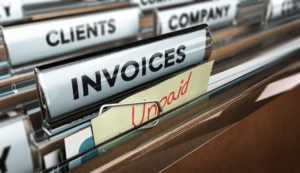
In a decision on Wednesday, May 6, 2020, Federal Court Judge Stearns granted a temporary injunction enjoining the Massachusetts Attorney General from enforcing its prohibition on certain debt collection activities during the COVID-19 State of Emergency. The decision found that the AG’s 90-day moratorium on debt collections activities was a violation of the First Amendment Rights of collection agencies without providing meaningful protections for consumers. We previously advised our Massachusetts clients to refrain from initiating collections procedures during this moratorium. Goldman & Pease now advises its Massachusetts clients, particularly creditors, condominium associations, and property managers on the activities that are permissible due to the new court injunction.
The (Overturned) Regulation
Issued and made effective on March 26, 2020, 940 CMR 35.00, “Unfair and Deceptive Debt Collection Practices During the State of Emergency Caused by COVID-19” (“Regulation”) sought to protect consumers from unfair and deceptive debt collection practices by prohibiting various collections activities such as initiating phone calls, drafting demand letters, and initiating lawsuits to debtors during the coronavirus pandemic.
Specifically, the Regulation established that it was an unfair or deceptive act or practice for any creditor, including a debt collector to:
- Initiate, file, or threaten to file any new collection lawsuit;
- Initiate or threaten to initiate any legal or equitable remedy for the garnishment, seizure, attachment, withholding of wages, earnings, property or funds for the payment of a debt to a creditor;
- Initiate or threaten to initiate remedy for the repossession of any vehicle;
- Apply for cause to be served or enforce a capias warrant;
- Visit or threaten to visit the household or place of employment of a debtor at any time; and
- Confront or communicate in person with debtor regarding the collection of debt in public.
What is the effect of the temporary injunction on the Regulation?
Standard debt collection practices may now resume, including initiating phone calls to discuss payment options, drafting demand letters, and preparing and filing lawsuits to collect unpaid debt.
Creditors are no longer restricted within the 90-day moratorium on initiating their normal collection activities. Condominium associations, property managers and all other creditors are now permitted to resume their debt collection communications with unit owners and other debtors, with demand letters and initiating legal complaints to obtain unpaid common area charges and other unpaid debts. So, continue to remind unit owners that condominium fees and costs are essential for the maintenance and support of the entire community, and that lien enforcement actions will proceed if delinquencies are not resolved promptly.
Goldman & Pease will continue to keep you advised of ongoing changes within the law as we all adapt to these trying times.
Goldman & Pease is a full-service civil litigation firm which, for over thirty-five years, has regularly advised and represented businesses, condominium boards, property managers, lending institutions, developers, and contractors on best practices and liability reduction measures in their debt collection efforts. Goldman & Pease LLC, 160 Gould Street, Needham, Mass. 02494. (781)292-1080.

